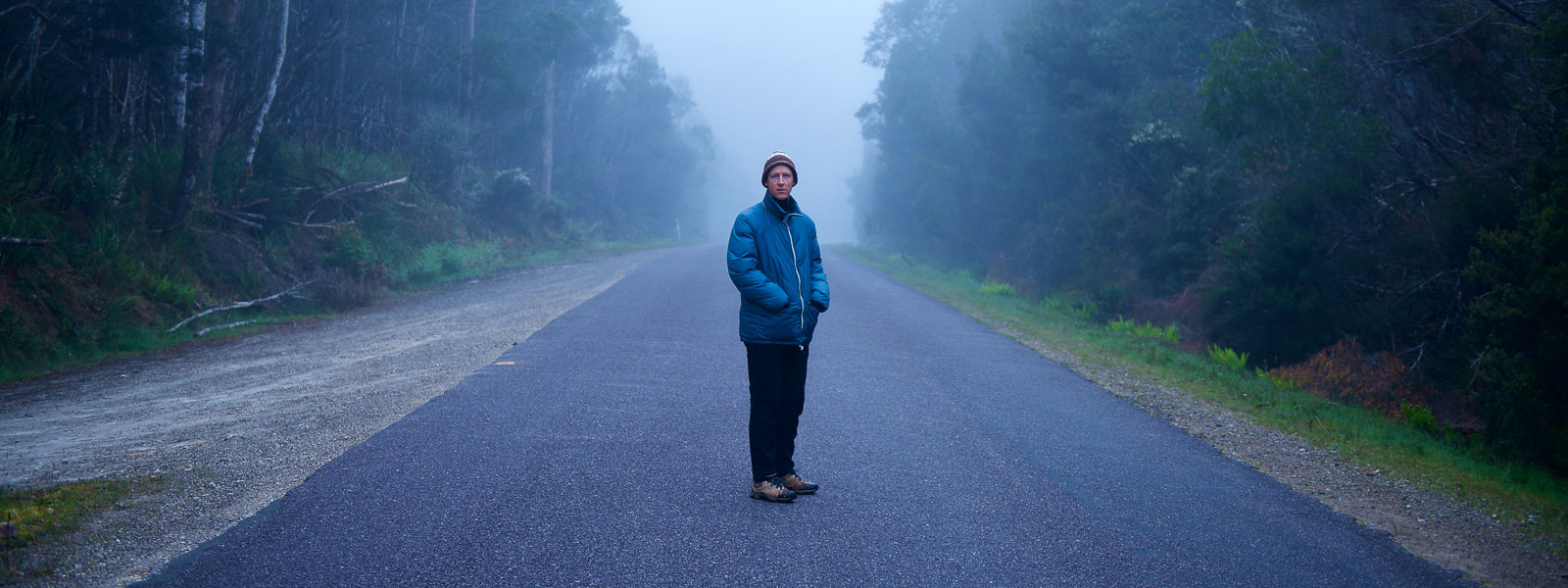I’m old enough to remember the tail end of the campaign to stop the damming of the Franklin River in Tasmania. In many ways the campaign was the impetus for my burgeoning consciousness of the importance of environmentalism and activism. To claim that it was one of the most vital Australian political campaigns of the period would in no way be an overstatement. What began as a fairly small protest to stop the Hydro-Electric Commission from devastating a precious and world heritage listed place with significant ties to the Indigenous community in Tasmania became a firebrand campaign that saw the rise of the Australian Green Party and pulled world focus on to the hubris of capitalism and the debate over how people saw nature as a never-ending resource to accommodate human need without recourse to how the natural world suffered in the name of “progress.”
Documentarian Kasimir Burgess has created a film that both displays the importance of the Franklin Blockade and delves into something far more personal in the story of Oliver Cassidy as he retraces his father Michael Cassidy’s rafting experience on the Franklin to join the blockade. Oliver, a trans man who works in environmental activism decides seven years after the death of Michael (here voiced by Hugo Weaving) that it is time to both introduce his authentic self to his father and to experience the life-altering journey on the Franklin as a way of saying goodbye. Oliver’s expedition is juxtaposed with footage of his father and his comrade, Dr Bob Brown, as they undertook rafting down the river. It is also mixed with archive footage of the seven-year protest to save the Franklin. Burgess takes the maxim that the personal is the political to a remarkably human story that encompasses Oliver’s struggles and allows them to form a focus point for the essential connection between humankind and nature that the Franklin campaign embodied.

In some ways Burgess presents the audience with a traditional documentary. There is the usual array of talking heads that narrate their experiences with the blockade and a lot of extremely important archival footage. Bob Brown forms the lynchpin for both the personal and political aspects of the piece. His transition from being a local Tasmanian GP to one of Australia’s most important (and often controversial) politicians is charted over the film. From his grassroots campaign that established the Tasmanian Wilderness Society, to his then failed bid to become Tasmanian Premier (beaten by pro dam conservative Robin Gray), to his friendship with the people who manned the blockade, Brown’s story is compelling. Brown also gives Oliver his remembrances of Mike Cassidy and lauds the young man as he undertakes his solo rafting adventure.
Franklin covers the blockade in depth. Burgess includes footage shot by Brown as he rafted the Franklin. It also includes the sheer scale of the volunteer effort that went in to saving the Franklin. Volunteers contacted various artists and celebrities to join the cause. Importantly the photography of Peter Dombrovski whose ‘Morning Mist, Rock Island Bend’ became one of the most reproduced photographs of the era and graced the walls of homes all over the world. Famous English botanist and television personality, David Bellamy joined the campaign and allowed himself to be arrested by the Tasmanian police (there were over 1200 people arrested in the protests). Bellamy’s piece drew even more public attention to the protest, and soon it became the biggest environmental issue ever witnessed in Australia.
Oliver’s rafting of the Franklin is an extraordinarily intimate excursion. Although there was a small camera crew with him, Burgess has managed to make it feel that Oliver was alone except for the presence of his father’s notebooks. The awe that Oliver feels, the fear he undergoes, the push and pull as to whether to continue or give up are rendered in a fashion that never casts doubt on the veracity of his experience. Nature is both nurturing and unforgiving and the Tasmanian wilderness is no exception. As Oliver makes it to his final destination he has connected with his father in a profound manner. He sees the ancient tree his father never saw and leaves Mike’s hat there as a tribute. The tree itself was vandalised by pro dam people whose hatred of “the greenies” was so deep-seated that post the final victory of the no dam campaign they burned and chopped at a tree that pre-dated white colonialism. Nonetheless, the tree has managed to survive and sprout new growth, a metaphor that Burgess uses to inspire hope about the future of environmentalism.
In a world where we are facing the extinction of the planet, Franklin acts as a reminder that people are not powerless to stand up to environmental destruction. Yes, the issue has become overwhelming as there are so many polluters and thousands of corporations who devastate the planet. The Wilderness Society used the phrase ‘Think Global, Act Local’ – and for many of us that is a maxim we must take to heart. Oliver Cassidy carried on his father’s work by fighting for the environment (the Stop Adani signs in his office are particularly meaningful). Burgess and Oliver have not given up the fight despite seemingly impossible odds. The Franklin flows because of brave people who took on the system from ground-level to the High Court and won. Franklin is more than a history lesson about those people, it is a blueprint for how we can take action now.
Director: Kasimir Burgess



